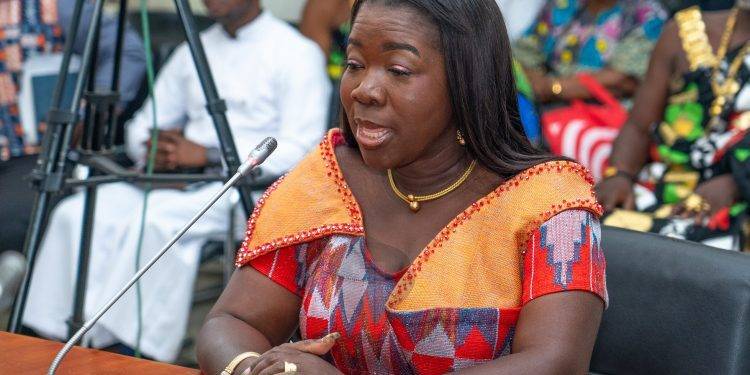Ghana’s government has pledged quick and strategic action following the
sudden announcement by the United States government to impose a 10 percent
universal tariff on imports from all countries, including Ghana. The decision
by the US, which takes effect from April 5, 2025, has stirred concern among
exporters, investors, and economic analysts across affected nations.
The US government explained that the new tariffs were introduced under the
International Emergency Economic Powers Act of 1977. These tariffs are aimed at
dealing with pressing national security and economic challenges stemming from
trade imbalances. In addition to the flat 10 percent tariff, the US will begin
enforcing reciprocal tariffs of between 11 to 50 percent on selected countries
starting April 9, 2025. However, goods that were already in transit to the US
before April 5 will not be affected by these changes.
In response, Ghana’s Ministry of Trade, Agribusiness and Industry released a
statement on April 5, reassuring the private sector of the government’s
commitment to address the issue urgently. The Ministry acknowledged the
possible impact on the Ghanaian economy and said they were already engaging
stakeholders to evaluate the full extent of the economic consequences.
According to the statement, the government is actively considering multiple
strategies to reduce the short-term shock of the tariffs and to secure
long-term trade stability. It emphasized that steps are being taken to ensure
businesses and exporters are fully informed, so they can plan with confidence
and maintain investment predictability.
Ghana’s trade relationship with the United States has been vital over the
years, with many of the country’s key exports enjoying duty-free access through
the African Growth and Opportunity Act. This includes a wide range of products
such as cocoa derivatives, gold jewelry, shea butter, yams, fruits, vegetables,
cashew nuts, and apparel. While the newly announced tariffs raise uncertainty,
there is a silver lining as not all products are affected.
The Executive Order that introduced the tariffs specifically exempts several
product categories from the new rules. These include pharmaceuticals, copper,
semiconductors, some energy products, lumber, and certain critical minerals.
These exemptions are expected to cushion the effect for some sectors within
Ghana’s export industry.
Nevertheless, concerns remain that the move could slow down Ghana’s trade
growth with the US and put pressure on local businesses that rely on exports.
To avoid disruptions in the country’s economic momentum, the Ministry announced
that senior government officials, including ministers from the Trade, Finance,
Foreign Affairs, and Agribusiness sectors, will hold direct talks with the US
Ambassador to Ghana on April 7.
These high-level engagements are aimed at gaining clarity on the policy,
advocating for Ghana’s interest, and exploring possibilities for diplomatic
adjustments. The government said it remains focused on keeping the business
community informed and equipped to adapt to the changing trade environment. It
also hinted at broader consultations with international partners to ensure
Ghana is not unduly disadvantaged by global policy shifts.
The announcement of the tariffs has triggered responses from leaders around
the world, with many countries calling for more balanced approaches to global
trade. In Ghana, industry leaders are closely watching how the situation
unfolds, especially as it relates to sectors that depend on US markets.
As one of Ghana’s key trade partners, the United States plays a central role
in supporting Ghanaian businesses, particularly those that have taken advantage
of trade incentives and export programs over the years. The government’s
assurance of swift and thoughtful response will be critical in maintaining
investor confidence and ensuring continued access to global markets.
For now, exporters are being urged to closely monitor updates and liaise
with trade authorities for guidance on the specific products affected and how
to manage their international operations amid the changes. As global trade
dynamics evolve, Ghana’s resilience will depend on how quickly it can navigate
new policies, protect its economy, and secure fair trade terms for its people.




No comments yet
Be the first to share your thoughts!